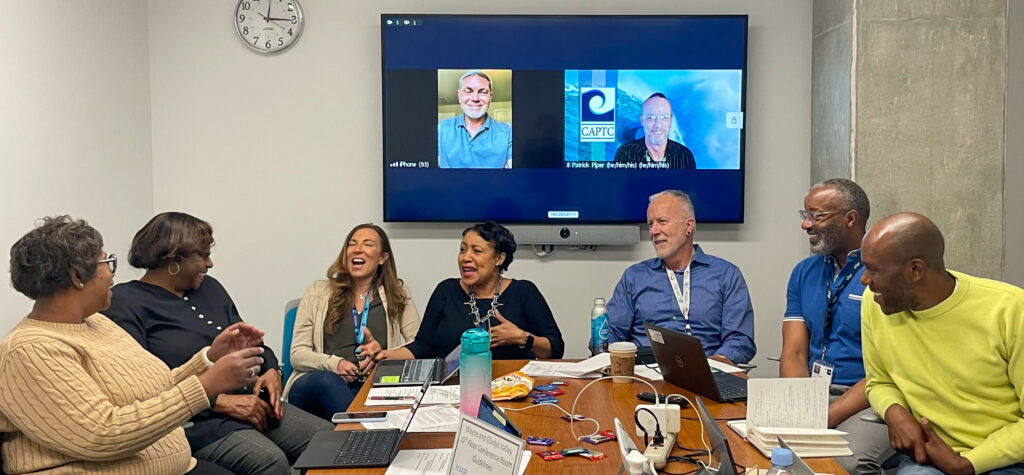CBA Looks Ahead to Year Five

On April 18, 2023, the CAPTC’s Capacity-Building Assistance (CBA) program met with the Center for Disease Control and Prevention (CDC) staff to discuss the impact of the past year’s activities and look ahead to the fifth and final year of our five-year grant. While this program’s technical assistance efforts have made great strides in reducing stigma surrounding HIV and other sexually transmitted infections (STIs) amongst California’s healthcare communities, there is ambition to further build on these successes.
The meeting began with a review of the fourth year of their five-year CDC-funded cooperative agreement, and a discussion of the impact of the technical assistance (TA) that the CBA program provides. The CBA team works to reduce the impact of HIV and STIs through a structural and social framework, seeing what systemic changes can be made to address the social determinants of health, such as the integration of HIV prevention and care programs. They serve 19 community-based organizations (CBOs) and 15 state and local health departments in the Western United States and are part of CDC’s Capacity Building Assistance Provider Network (CPN). Uniquely, CBA brings a culturally responsive approach to their work, allowing for strengthened community engagement.
CBA offers two forms of technical assistance. The first is proactive, in which CAPTC CBA provides TA based on ongoing assessments of needs of CBOs and local health departments. The second is reactive, which allows an organization to request TA to solve an issue following its emergence.
Reactive technical assistance makes up the majority of TA requests, as it is more familiar to these organizations and can be tailored to their specific needs. For instance, many recent reactive TA requests have been from health departments looking to address racial inequity. However, for organizations that don’t know what they need, it can be difficult to make this type of request and get the assistance they need.
Proactive technical assistance, which is a feature new to this grant period, gives organizations a chance to learn about the assistance we can offer them. In addition to generating future requests for reactive TA, the opportunity for multiple CBOs to receive training at the same time is not only more efficient, but also facilitates knowledge sharing and interaction with their peers.
Looking ahead to the final year of the grant, the CBA and CDC teams expressed a desire to increase proactive technical assistance and widen the range of participating CBOs. Some topics of future TA may include community engagement, HIV partner services (with an emphasis on digital partner services), and condom distribution. Furthermore, a new social media hub is in development which will higlight social media profiles of CBAs in the West region, allowing for peer-to-peer learning between these groups.
The CDC encouraged the CBA team to collaborate with other CBAs in the Intermountain Western Region to support the foundational aspects of the program. To do so, the team is co-organizing the Intermountain West Harm Reduction Conference this September. In addition, an online, self-paced course focusing on the social determinants of health is being created. Plans for an additional online course regarding structural interventions are currently in progress, a complement to the initial curriculum.
“We all work together to make this happen. We all have one mission,” said Sherry Lomax, the CDC’s CBA program consultant.
